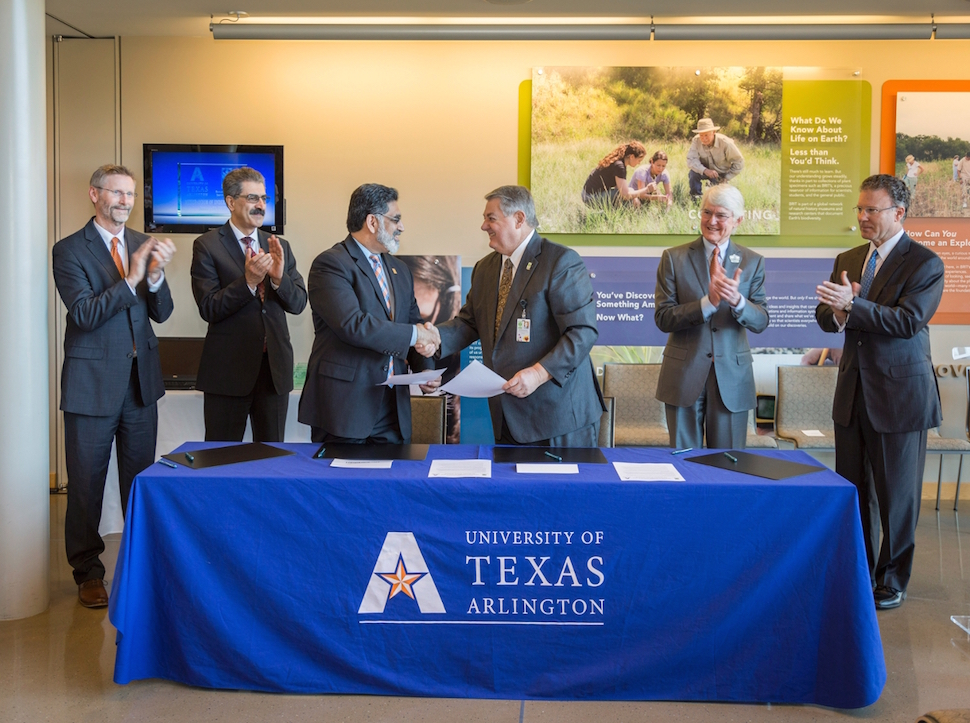Officials from the University of Texas at Arlington and Fort Worth-based Botanical Research Institute of Texas signed an agreement Monday to collaborate on botanical research.
The partnership will give UTA faculty and graduate students access to BRIT’s state-of-the-art research facilities, including more than 1 million plant specimens in its herbarium. BRIT scientists will also help teach UTA classes and serve as mentors for students.
“This partnership means not just new opportunities for students, but the potential for discovery that can impact Texas and beyond.”
MORTEZA KHALEDI
“At the end of the day, what you expect the students to learn is to become critical thinkers and problem solvers,” Peter Fritsch, vice president of research and director of the herbarium at BRIT, told the Fort Worth Star-Telegram. “Especially for Ph. D students, you want them … to become independent researchers. And in a field as important as plant biology overall, that also serves the community.”
Together, UTA and BRIT will conduct research they hope will lead to new biofuels, higher crop yields, and a better understanding of Earth’s plant diversity, according to the university.
“This partnership means not just new opportunities for students, but the potential for discovery that can impact Texas and beyond,” said Morteza Khaledi, dean of UTA’s College of Science, in the release.

[ Photo: Courtesy of UTA ]
READ NEXT
BRIT, Tarleton State Unite to Map Rare Plants Along State Highways
Delivering what’s new and next in Dallas-Fort Worth innovation, every day. Get the Dallas Innovates e-newsletter.






























